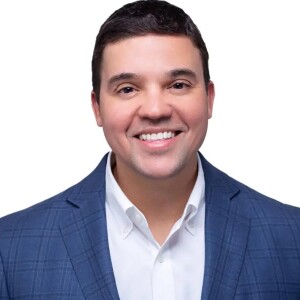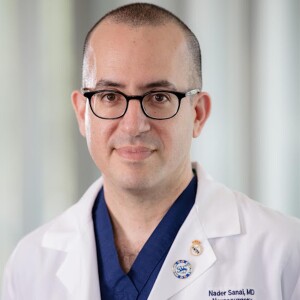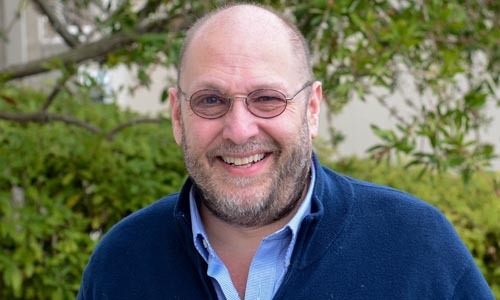Episodes

Wednesday Jun 14, 2023
Developing Immunotherapies that Target the Drivers of Cancer
Wednesday Jun 14, 2023
Wednesday Jun 14, 2023
One reason that CAR T therapies haven’t been more effective at treating solid tumors is their reliance on targeting antigens on the surface of cells, which can often be present on healthy cells as well. Affini-T Therapeutics is addressing this weakness in current cell therapies by using its platform technology to develop T cell receptor engineered T cells. Its so-called TCR-T cells are able to recognize intracellular targets and attack the drivers of mutations that are inaccessible to CAR-T therapies. We spoke to Jak Knowles, CEO of Affini-T Therapeutics, about the company’s TCR-T cell therapies, how they are engineered, and why they have the potential to be effective at treating solid tumors that have evaded the power of CAR T therapies.

Wednesday Jun 07, 2023
Using Phase 0 Trials to Bring Precision Medicine to Treating Brain Tumors
Wednesday Jun 07, 2023
Wednesday Jun 07, 2023
More than 138,000 people in the United States and 1.4 million people worldwide are struggling with malignant brain tumors. The average five-year survival rate of people with the most common malignant brain tumor—glioblastoma multiforme—is less than 5 percent and there have been no notable improvements in the last three decades. The Ivy Brain Tumor Center is using phase 0 clinical trials to provide individualized treatment to patients with brain tumors. The U.S. Food and Drug Administration introduced phase 0 trials in 2004 to address concerns about the slow pace and high cost of drug development. The phase 0 trial is used to quickly identify how a drug works in a patient and whether it should be fast-tracked for further development. We spoke to Nader Sanai, director of the Ivy Brain Tumor Center and chief of neurosurgical oncology at the Barrow Neurological Institute, about phase 0 clinical trials, how they work, and how they are allowing the center to take a precision medicine approach to treating patients with brain tumors.

Wednesday May 31, 2023
Restoring Feeling and Function to Damaged Nerves
Wednesday May 31, 2023
Wednesday May 31, 2023
Traumatic injuries and surgical procedures can damage peripheral nerves and cause the loss of muscle or organ function, pain, and the loss of sensation. Axogen has a portfolio of regenerative medicine products to enable surgeons to repair peripheral nerves without the need to harvest nerves from a patient’s own body. We spoke to Karen Zaderej, CEO of Axogen, about peripheral nerve injuries, the company’s portfolio of products, and how it is changing the way surgeons can repair and regenerate damaged nerves.

Wednesday May 24, 2023
Enlisting Vaccines in the Fight Against Chronic Diseases
Wednesday May 24, 2023
Wednesday May 24, 2023
About 20 years ago, the number of people dying from chronic diseases surpassed the number of people dying from infectious ones. Though vaccines have contributed to this shift, they’ve generally not been harnessed to address chronic conditions. Vaxxinity is seeking to change that by using vaccine technology to address the growing burden of chronic diseases. It’s advancing a new class of synthetic, peptide-based vaccines designed to activate the body’s immune system to produce antibodies to neurodegenerative, cardiovascular and other chronic diseases. The company’s pipeline includes experimental therapies for Alzheimer’s disease, Parkinson’s disease, and hypercholesterolemia. We spoke to Mei Mei Hu, CEO of Vaxxinity, about the case for using vaccines to address chronic diseases, the benefits this approach provides, and how its platform technology activates the immune system to battle non-communicable diseases.

Wednesday May 17, 2023
Extending the Reach of Protein Degradation Therapies
Wednesday May 17, 2023
Wednesday May 17, 2023
Developing therapies that work by degrading disease-causing proteins has shown promise, but first-generation approaches have been limited to targeting intracellular proteins and can’t reach membrane and extracellular proteins that represent about 40 percent of the proteome. EpiBiologics is working to expand protein degradation therapies to include membrane and extracellular targets with the goal of eliminating disease-causing proteins that were previously not addressable by traditional therapeutic approaches. We spoke to Rami Hannoush co-founder and interim CEO and president of EpiBiologics, about the company’s platform technology, how its protein degradation approach expands the potential targets for its therapies; and how its built an atlas of tissue-specific degrader antibodies to target proteins involved in cancer, immunologic-, and neurologic-related conditions.

Tuesday May 09, 2023
Growing the Bioeconomy
Tuesday May 09, 2023
Tuesday May 09, 2023
While many people think of biotechnology in terms of its impact on medicine, it’s expected to transform the economy as its power reaches across industries. As biology increasingly becomes an engineering discipline, it is not only reshaping the way we produce food, but a wide range of industrial products as well. Bio-based processes are replacing petroleum-based ones and giving life to new biomaterials, bioplastics, and biofuels. As the SynBioBeta Global Synthetic Biology Conference returns to Oakland, California May 23 to May 25, we spoke to SynBioBeta Founder and CEO John Cumbers, about the state of the emerging bioeconomy, how biotechnology is being embraced across industries, and the unexpected places biotechnology is already showing up.

Wednesday May 03, 2023
Developing Targeted Therapies to Address Resistance in Cancer
Wednesday May 03, 2023
Wednesday May 03, 2023
One reason that cancers can be difficult to treat is that the tumor microenvironment can hamper the ability of drugs to penetrate the tumor and facilitate the development of resistance to medicines. AUM Biosciences is developing targeted therapies that address genetic drivers of a cancer and can disable defenses that hide tumors from the immune system. The company’s lead experimental therapy is being tested in combination with immunotherapies to treat colorectal cancer and other solid tumors. We spoke to Vishal Doshi, chairman and CEO of AUM, about the development of resistance in cancers, the case of combining precision therapies with immunotherapies, and why he believes we can transform cancer from a deadly condition to a chronic disease.

Wednesday Apr 26, 2023
It Takes a Village
Wednesday Apr 26, 2023
Wednesday Apr 26, 2023
While there has been great interest in harvesting and targeting the microbiome to treat disease, Federation Bio believes for durable benefits its necessary to provide a rich ecosystem of microbes in a single therapy. The company has developed a platform for producing synthetic microbial cell therapies to treat a range of diseases from metabolic disorders to metastatic cancers. Unlike earlier approaches, the company said it is generating potent, reproducible, and complete microbial consortia that stably engraft to provide predictable and durable responses. We spoke to Emily Drabant Conley, CEO of Federation Bio, about its platform technology, how it determines what to include or exclude in a given therapy, and what makes a disease a good candidate for its living therapeutics approach.

Daniel Levine
Daniel Levine is an award-winning business journalist who has reported on the life sciences, economic development, and business policy issues throughout his career. He is founder and principal of Levine Media Group, host of The Bio Report and RARECast podcasts, a senior fellow at the Center for Medicine in the Public Interest, and author of Global Genes’ annual NEXT report on emerging trends in the world of rare disease. From 2011 to 2014, he served as the lead editor and writer of Burrill & Company’s acclaimed annual book on the biotech industry. His work has appeared in numerous national publications including The New York Times, The Industry Standard, and TheStreet.com.

